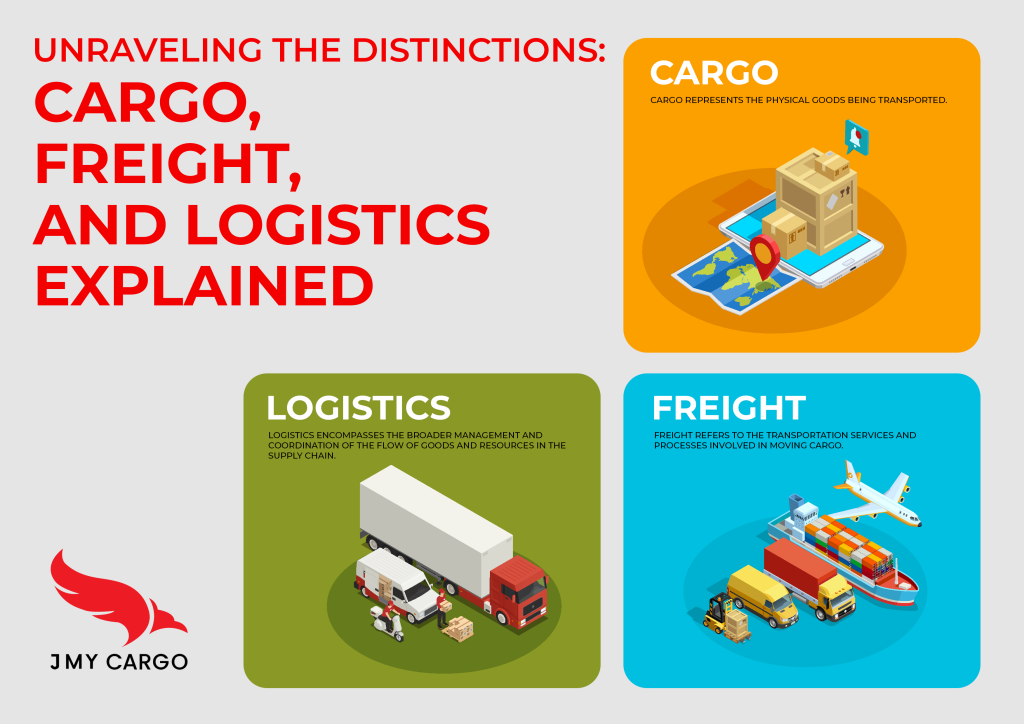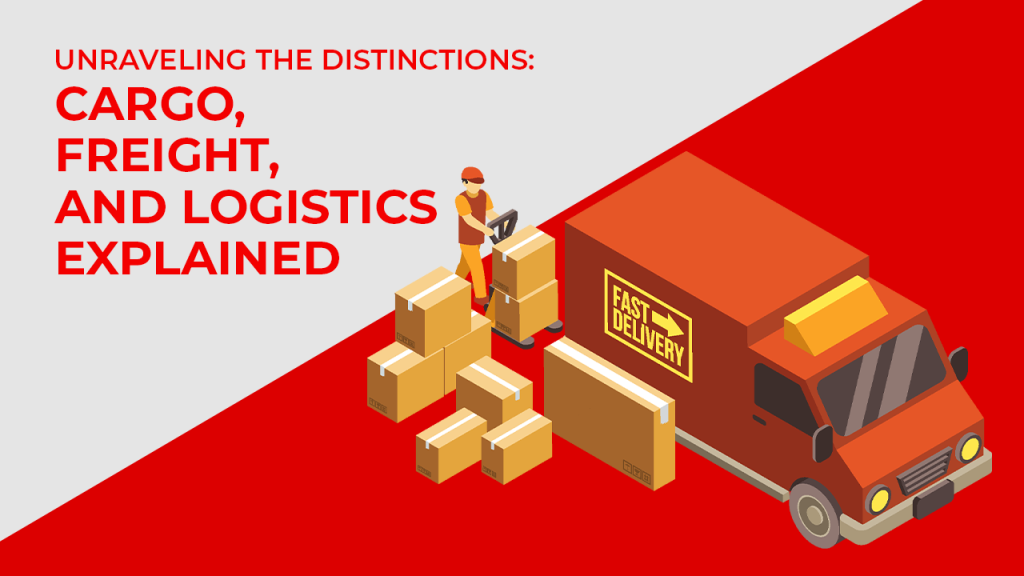Introduction:
In the realm of transportation and supply chain management, certain terms often intertwine, leading to confusion among individuals. Three such terms that are commonly used interchangeably are cargo, freight, and logistics. While they share a close relationship, understanding their unique meanings is crucial to grasp the nuances of the industry. In this blog post, we will delve into the differences between cargo, freight, and logistics, shedding light on their distinct roles and functions.
Cargo:
Cargo refers to the goods or products being transported from one location to another, whether domestically or internationally. It encompasses a broad range of physical items, including raw materials, finished products, equipment, and more. Cargo can be transported by various modes of transportation, such as ships, airplanes, trucks, or trains. Essentially, cargo represents the tangible items that are moved from point A to point B.
Freight:
Freight, on the other hand, is a term used to describe the transportation of cargo. It specifically relates to the services and processes involved in moving cargo from its origin to its destination. Freight includes activities such as packaging, loading, unloading, and transporting cargo, as well as associated documentation and legal procedures. Freight is essentially the movement of cargo using different modes of transportation, facilitated by carriers and logistics providers.
Logistics:
While cargo and freight focus on the physical aspect of transportation, logistics encompasses a broader set of activities involved in managing and coordinating the flow of goods, information, and resources throughout the supply chain. Logistics encompasses the planning, execution, and control of the movement and storage of goods, along with related activities such as inventory management, warehousing, order fulfillment, and distribution. It involves managing the entire supply chain to ensure the efficient and timely delivery of cargo while optimizing costs and resources.

Distinguishing Factors:
To summarize the differences:
- Cargo represents the physical goods being transported.
- Freight refers to the transportation services and processes involved in moving cargo.
- Logistics encompasses the broader management and coordination of the flow of goods and resources in the supply chain.
While cargo and freight are integral components of logistics, logistics involves a more comprehensive approach that incorporates various activities beyond just transportation.
Conclusion:
By unraveling the distinctions between cargo, freight, and logistics, we gain a clearer understanding of their roles and functions within the transportation and supply chain industry. Cargo represents the tangible goods being transported, while freight pertains to the services and processes involved in their movement. Logistics, on the other hand, encompasses a broader spectrum of activities related to managing the entire supply chain, ensuring the seamless flow of goods, information, and resources. Appreciating these differences enables us to navigate the complex world of transportation and logistics more effectively, leading to efficient supply chains and seamless cargo movement.

